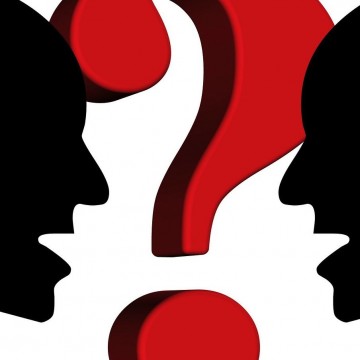Job Corner: One Simple Shift to Improve Your Communication
Monday, April 27, 2015

In every organization there is a legitimate explanation for the way things are done. You may not agree with it. And its inception may pre-date your time in the organization. But in most cases there’s a rational explanation.
Asking the wrong question, however, is unlikely to yield the response you want. And my client was asking the wrong question.
The problem? He was asking a why question when he should have been asking a what question.
One Small Shift: Using “What” Questions Instead Of “Why” Questions.
Here are three reasons to shift away from “why” questions:
1. Starting a question with “why” can put people on the defensive. When others are defensive, the conversation is less productive, and less collaborative. When people are defensive, the response will be more about defending their position, and less about providing you meaningful information.
For example, “Why do we manage the client file process that way?” might be interpreted as “I don’t like the way we are doing this, please justify it to me.”
2. “Why” questions tend to be ill-defined. When you ask a bad question, you get a bad answer. Garbage in, garbage out, as they say.
For example, “Why do we manage the client file process that way?” might be answered with, “Well there’s a million reasons and 8 years of history as to why we do that. Where would you like to start?” No one is any further along in the conversation.
3. “Why” questions avoid the point. My client didn’t really want to know “why” the process was the way it was. He objected to the process and wanted to change it.
What he meant was, “This process makes no sense. Help me understand.” But instead he asked a vague question.

The Solution? Use “What” Questions.
“What” questions drive conversation back to facts and objectivity. They pull presumption from the conversation. It takes the recipient out of defense mode, and opens the way to a more effective dialog.
Here are a few examples.
To avoid making others defensive:
Before: Why is Herman assigned to that account?
After: What selection criteria did you use to place people on the account teams?
To prevent an ill-defined question:
Before: Why is the pricing on the ACME contract so low?
After: What are the business drivers in the ACME contract pricing? I’ll need more info about the difference between that contract and others.
To get to the point:
Before: Why are you calling a noon meeting?
After: What’s the need for a meeting at noon? It might be hard to round the team up.
I suggested my client put the situation in context. I encouraged him to look at his intention, and reframe the question.
Instead of asking, “Why are we inputting the client files that way?” He could change it up to something like this:
“I know our goal is to make sure client files are input before the end of the day. What was the intention of making it a two-step process instead of just one step?”
Can you see how that question totally changes the tone of the conversation? And what different response it might engender? And, how much better information you’ll get by asking it?
Shifting from “why” questions to “what” gets you better responses and richer conversation. By training yourself to ask “what” questions, you’ll also be forcing yourself to be clearer about what you want out of the answer. That will make your communication more meaningful for you and your audience.

She works with individuals and teams to make the work experience better, resolve conflict, and improve collaboration. Get started with her 21 Days To Peace At Work e-course. It’s free!
She also created The Resume Coloring Book online course to give clients a step-by-step process for writing a great resume, at a fraction of the cost a professional would charge.
Related Articles
- Job Corner: 2 Life Changing Communication Strategies You Need
- Job Corner: 20 Signs Your Resume Won’t Pass The Skim Test
- Job Corner: 3 Interview Strategies That Get Offers
- Job Corner: 3 Job Search Fails That Trip Women Up
- Job Corner: 4 Bad Habits Making Your Job Search Miserable
- Job Corner: 6 Strategies For Your Bully Boss
- Job Corner: Are You A LinkedIn Loser?
- Job Corner: Don’t Always Lead With Your Resume
- Job Corner: Don’t Write a Crappy LinkedIn Headline
- Job Corner: How to Get Along With Younger Co-Workers
- Job Corner: Resume Templates Are Killing Your Job Search
- Job Corner: Stop Saying You Don’t Have Time
- Job Corner: Why Your Boss is a Bully




Follow us on Pinterest Google + Facebook Twitter See It Read It